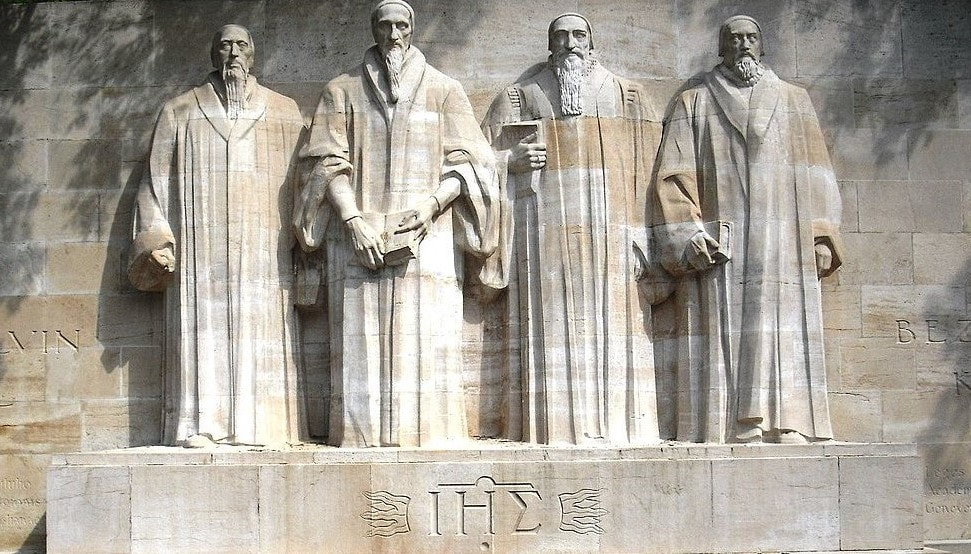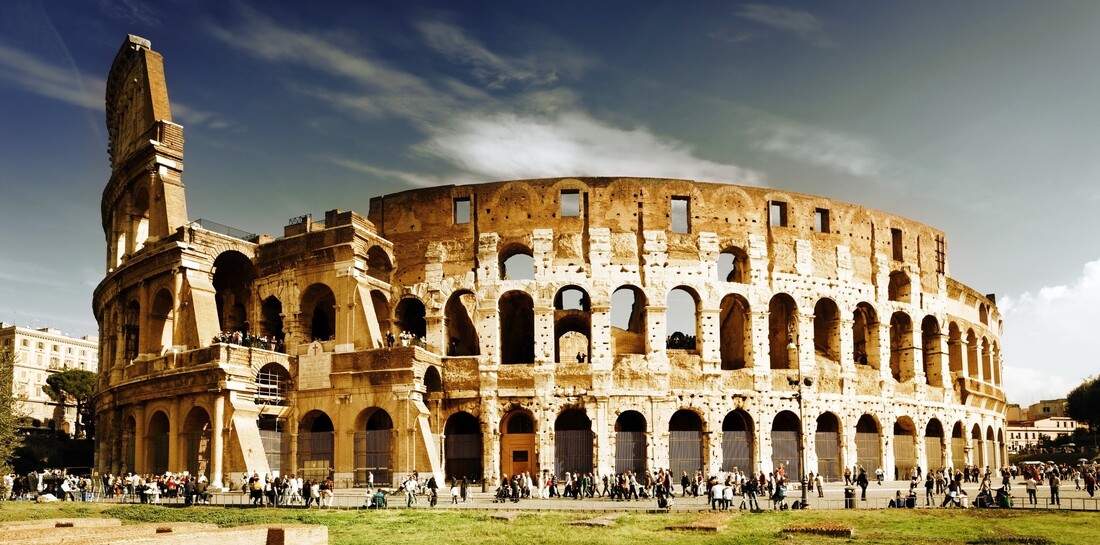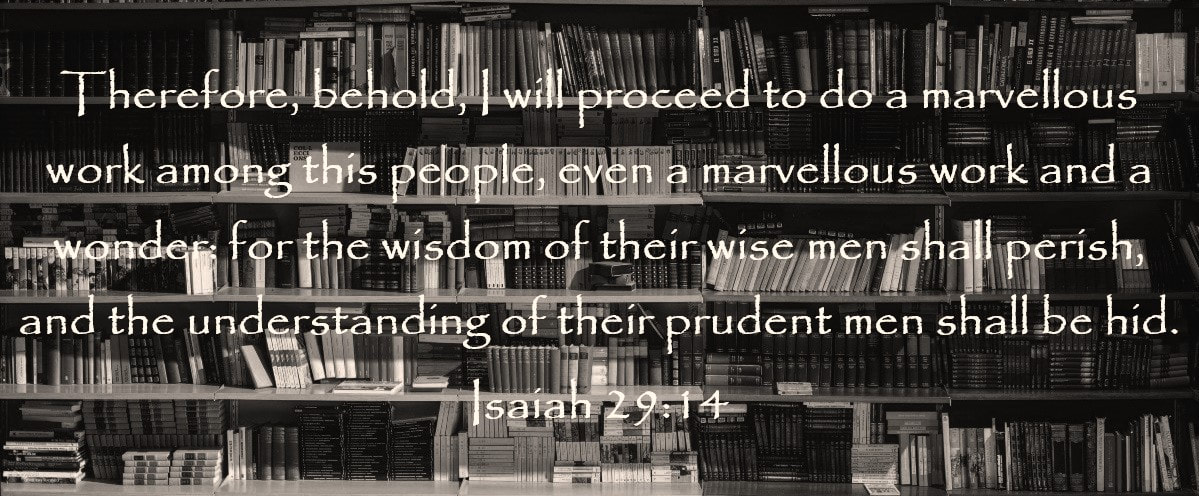"...It is enough; now, O LORD, take away my life;
for I am not better than my fathers." - 1 Kings 19:4
for I am not better than my fathers." - 1 Kings 19:4
Elijah was a student of Church History. From a place of deep conviction he aspired to advance beyond the status quo hypocrisy prevalent among his fathers. His standards of life and godliness were born from Holy Scripture. Therefore, at a crisis moment of weakness, when Elijah came to believe he had failed God and succumbed to the cowardice of hypocrites, he lamented, "...I am not better than my fathers" (1 Kings 19:4).
Can you relate? Indeed! Gray hairs should speak and young men should keep silent. I agree. The hoary heads should be honored and the youth should pay their respect. Aged men should instruct and children should hearken diligently. However, in the process, only let God speak while all flesh remains silent (1 Pet. 4:11). Only let God have the honor and get all the glory (1 Cor. 1:29). Only let all earthly fathers conform themselves to our Heavenly Father (Rom. 12:2).
Can you relate? Indeed! Gray hairs should speak and young men should keep silent. I agree. The hoary heads should be honored and the youth should pay their respect. Aged men should instruct and children should hearken diligently. However, in the process, only let God speak while all flesh remains silent (1 Pet. 4:11). Only let God have the honor and get all the glory (1 Cor. 1:29). Only let all earthly fathers conform themselves to our Heavenly Father (Rom. 12:2).
"I said, Days should speak, and multitude of years should teach wisdom. But there is a spirit in man: and the inspiration of the Almighty giveth them understanding. Great men are not always wise: neither do the aged understand judgment." - Job 3:7-9
Nowadays, in order for God to be honored aged men must be dishonored. In order for God to be heard the status quo hierarchy of authority must be disrupted. This proves true for all man-made structures of authority prevalent in the Church, or those which are imposed upon the Church. In other words, this proves true with our fathers and our forefathers - the living and the dead. For, as is often the case, when men of renowned in Church History reach a certain level of notoriety and fame among believers, they become "icons". The sense of reverence is so strong that the status of these men is somehow immortalized with iconic glory.
These are "the ancients". A handful of top-tier men redeemed by grace. Call them Calvinists or Arminians, or whatever you please. Call them Reformers or Puritans; it makes no difference to God. They made an impact upon their generations, and now they are the icons of our generation. Men think they are doing God a service by etching their images in stone (Ex. 20:3-5). They see no shame in this. Exhilarated pilgrims pay homage and go away happy. They brag about the experience and imagine themselves to be more godly at having made the journey.
The faults and errors of "the ancients" are either discredited or practically irrelevant because they are generally unknown by the Church. Therefore, the common perception among believers is radically exaggerated. A culture of intolerance thickens in the air. The unspoken rule is that no one should dare to cross the counsel of "the ancients", nor should anyone humbly criticize their confessions of faith. Albeit, not so much could be said of the young man, Elihu.
The faults and errors of "the ancients" are either discredited or practically irrelevant because they are generally unknown by the Church. Therefore, the common perception among believers is radically exaggerated. A culture of intolerance thickens in the air. The unspoken rule is that no one should dare to cross the counsel of "the ancients", nor should anyone humbly criticize their confessions of faith. Albeit, not so much could be said of the young man, Elihu.
"Let me not, I pray you, accept any man's person, neither let me give flattering titles unto man. For I know not to give flattering titles; in so doing my Maker would soon take me away." - Job 32:21-22
We should all aspire to be like our fathers and forefathers, only inasmuch as they are like our Father in Heaven. Anything else amounts to a growing culture of flattery in the Church. A fever of idolatry is paralyzing the Body of Christ, and this makes for a sick Church in a dying world. The circumstances couldn't be more tragic. The Bride of Christ wouldn't dare to think she could be wiser than "the ancients". Her estimation of grace is severely dwarfed (Eph. 3:20-21) while her reliance upon Scripture is diminishing by the year (Acts 20:32). Albeit, not so much could be said of the young man, David.
"MEM. O how love I thy law! it is my meditation all the day. Thou through thy commandments hast made me wiser than mine enemies: for they are ever with me. I have more understanding than all my teachers: for thy testimonies are my meditation. I understand more than the ancients, because I keep thy precepts." - Psalm 119:97-100
David was severely oppressed while growing up in the Kingdom of Saul. Yet, by the grace of God, he didn't succumb to the pressure heaped upon him by backsliders and compromisers, and neither should we. The breath of God has recorded and preserved the jubilee of this worshiper in Psalm 119:97-100, and we would do well to take heed. Even if it is to the dismay of modern day oppressors who feel threatened by our exclusive and seemingly radical trust in Scripture.
"The tragedy of this late hour is that we have too many dead men in the pulpits giving out too many dead sermons to too many dead people. Oh! the horror of it. There is a strange thing that I have seen "under the sun," even in the fundamentalist circles; it is preaching without unction. What is unction? I hardly know. But I know what it is not (or at least I know when it is not upon my soul). Preaching without unction kills instead of giving life. The unctionless preacher is a savor of death unto death. The Word does not live unless the unction is upon the preacher. Preacher, with all thy getting - get unction." - Leonard Ravenhill
“Salvation of America does not depend upon the White House it depends upon God’s House, and before God does anything He will clean up the Church. When He was on earth He cleaned up the Temple, when He comes again He will clean up the pulpit - Judgment must begin at the House of God; judgment must begin with the preachers! I think the most awesome task in the world tonight is not to be the President of the United States or the King of an Empire, but to be a man who stands between a Living God and a dying people. I’d like to send a notice to all the deacons of every Church in America: ‘If your preacher doesn’t weep over the congregation - weep over your preacher!’" – Leonard Ravenhill
“Salvation of America does not depend upon the White House it depends upon God’s House, and before God does anything He will clean up the Church. When He was on earth He cleaned up the Temple, when He comes again He will clean up the pulpit - Judgment must begin at the House of God; judgment must begin with the preachers! I think the most awesome task in the world tonight is not to be the President of the United States or the King of an Empire, but to be a man who stands between a Living God and a dying people. I’d like to send a notice to all the deacons of every Church in America: ‘If your preacher doesn’t weep over the congregation - weep over your preacher!’" – Leonard Ravenhill



 RSS Feed
RSS Feed